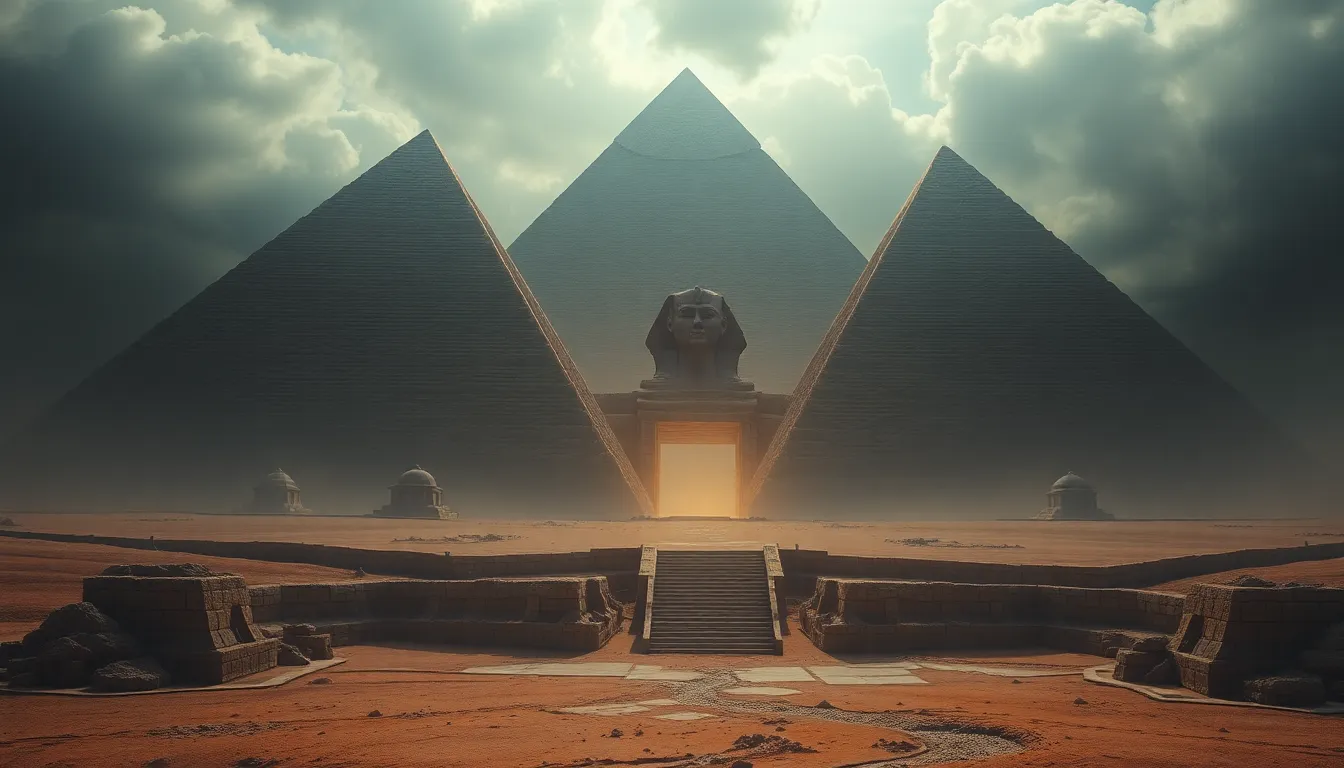The Myth of Justice: How Legends Reflect Our Ethical Beliefs
I. Introduction
Justice is a multifaceted concept that varies across different cultures and societies. In contemporary society, justice is often defined as the fair treatment of individuals, the upholding of rights, and the equitable distribution of resources. However, the understanding of justice is not just a modern invention; it is deeply rooted in historical narratives and cultural myths.
Myths and legends have played a critical role in shaping our ethical beliefs, providing frameworks through which societies interpret concepts of right and wrong. These stories, passed down through generations, serve as moral compasses that guide behavior and inform our understanding of justice.
This article aims to explore the intricate intersection of justice and mythology, delving into how these ancient narratives continue to influence modern ethical beliefs and practices.
II. Historical Context of Justice in Mythology
The concept of justice can be traced back to ancient cultures, where it was often intertwined with the divine and the cosmic order. In many early societies, justice was seen as a manifestation of the will of the gods, ensuring that moral order prevailed.
Key myths illustrating early notions of justice include:
- Greek Mythology: The story of Themis, the goddess of justice, symbolizes the importance of fairness and moral order among gods and humans alike.
- Roman Mythology: The figure of Justitia represents the Roman ideals of law and equity, often depicted blindfolded to signify impartiality.
- Eastern Traditions: In Hindu mythology, the concept of Dharma emphasizes moral duty and righteousness, linking justice to cosmic order.
Over time, these myths evolved, adapting to the changing values and beliefs of societies. They became not only stories of divine intervention but also reflections of human aspirations for fairness and equity.
III. The Role of Legends in Shaping Ethical Frameworks
Legends serve as powerful moral guides within societies, providing narratives that illustrate the consequences of ethical and unethical behavior. Through storytelling, cultures communicate their values and norms, allowing generations to learn from the experiences depicted in these tales.
The impact of storytelling on collective ethical beliefs is significant; legends create shared narratives that bind communities together. Examples of legends that promote justice include:
- King Arthur: The quest for the Holy Grail and the chivalric code exemplify the pursuit of justice and moral righteousness.
- Robin Hood: The tale of Robin Hood represents the fight against corruption and the defense of the oppressed, emphasizing the importance of social equity.
These legendary figures not only entertain but also inspire individuals to uphold justice in their own lives, demonstrating the enduring power of myth in shaping ethical frameworks.
IV. Justice Archetypes in Mythical Narratives
Within mythology, certain archetypes emerge that represent various aspects of justice. These figures often embody the ideals of fairness, retribution, and moral authority. Common archetypes include:
- The Avenger: Characters who seek vengeance for wrongs done to themselves or others, often highlighting the theme of retributive justice.
- The Wise Ruler: Leaders who embody fairness and wisdom, making decisions that uphold justice for their people.
These archetypes can be found in various cultures:
- Native American Myths: Figures like the Trickster often challenge injustices, revealing deeper truths about human nature.
- African Folklore: Characters like Anansi the Spider teach lessons about cleverness and justice through cunning and wit.
- Asian Myths: The Bodhisattva in Buddhism represents compassion and the pursuit of enlightenment as a form of justice.
The psychological impact of these archetypes fosters a collective understanding of justice, shaping societal ethics and values.
V. The Duality of Justice in Myths
Justice is often portrayed with a duality in myths, encapsulating the tension between retributive justice (punishment for wrongdoing) and restorative justice (repairing harm and restoring balance). This duality can lead to complex interpretations of justice in various narratives.
Case studies of myths that embody conflicting justice themes include:
- Prometheus: A symbol of defiance against divine authority, Prometheus represents the struggle for knowledge and freedom, often punished for his benevolence.
- Loki: In Norse mythology, Loki embodies chaos and mischief. His actions lead to conflict, raising questions about accountability and the nature of justice.
The implications of this duality resonate in modern ethical dilemmas, prompting individuals and societies to grapple with what justice truly means.
VI. Modern Interpretations of Justice Myths
Contemporary society often reinterprets ancient myths of justice, reflecting current values and issues. Popular media, including films, books, and games, play a significant role in shaping justice narratives.
For example:
- Movies like “V for Vendetta” and “The Dark Knight” explore themes of vigilantism and moral ambiguity in the pursuit of justice.
- Books such as “The Hunger Games” critique systemic inequality and the struggle for justice in oppressive societies.
- Video games often present players with moral choices that challenge traditional concepts of justice.
Social movements also contribute to this reinterpretation, reclaiming and reshaping justice myths to address contemporary issues such as racial inequality, gender rights, and environmental justice.
VII. Ethical Lessons from Justice Myths
Justice myths offer valuable ethical teachings that can be applied to current societal issues. Key lessons derived from these legendary narratives include:
- The importance of standing up against oppression and advocating for the marginalized.
- The recognition that justice is not merely about punishment, but about healing and restoration.
- The need for active participation in the pursuit of fairness and equity in society.
These lessons remain relevant in addressing issues such as inequality and corruption, providing a moral framework for personal and societal development.
VIII. Critiques of Justice Myths
While justice myths offer valuable insights, it is essential to analyze their limitations and biases. Traditional justice legends often glorify certain narratives while marginalizing others.
Some critiques include:
- The danger of romanticizing certain figures, like Robin Hood, without acknowledging the complexities of their actions.
- The absence of diverse voices in traditional narratives, leading to a narrow understanding of justice.
- The need for a more inclusive approach that recognizes the experiences and struggles of marginalized communities.
By expanding our understanding of justice in mythology, we can foster a more nuanced and equitable discourse on ethics.
IX. The Future of Justice in Mythology
As society continues to evolve, so too will the myths that shape our understanding of justice. Emerging myths reflect contemporary challenges and aspirations, illustrating the dynamic nature of ethical beliefs.
Looking forward, we may witness:
- New narratives that address modern issues such as digital justice, climate change, and global inequality.
- A greater emphasis on inclusive storytelling that recognizes diverse cultural perspectives on justice.
- The rise of mythic figures that embody contemporary values such as sustainability, equity, and community resilience.
In conclusion, the myth of justice is a powerful lens through which we can understand our ethical beliefs and societal norms. By examining the legends and myths that have shaped our perceptions of justice, we can better navigate the complexities of moral decision-making in the modern world.




